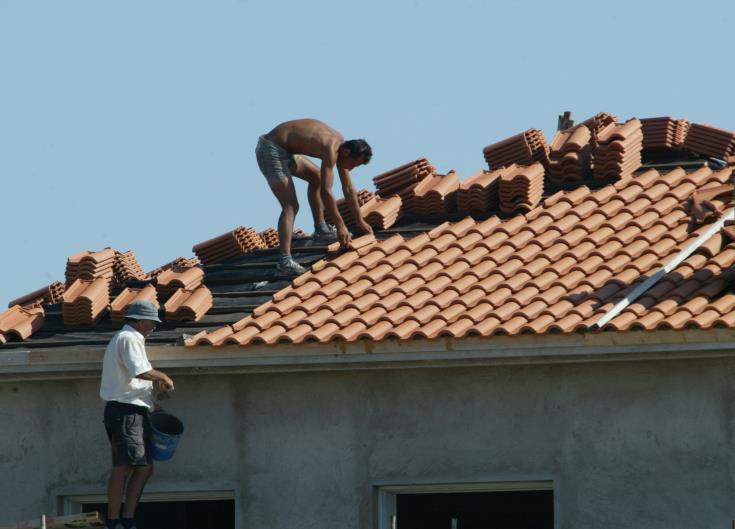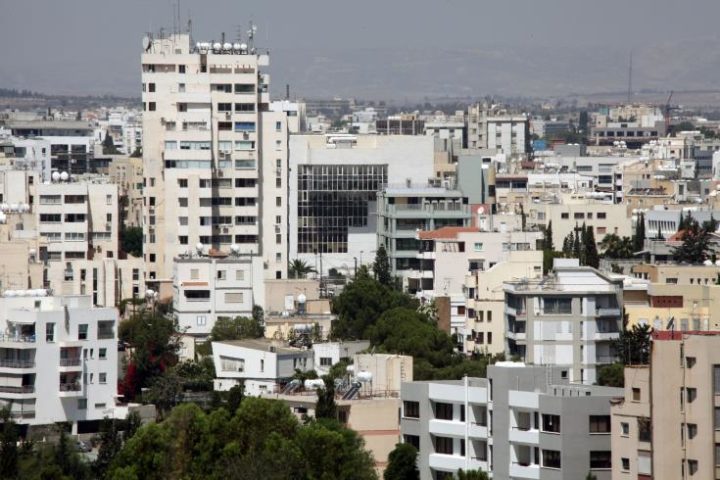A European Union directive to reduce the size of homes entitled to lower 5% VAT endangers the recovery of the construction sector and the economy, say, real estate experts.
According to a recent EU directive, member states are obliged to introduce legislation of 5% VAT on homes up to 140 square metres.
In Cyprus, the reduced rate of 5% VAT applies for homes up to 200 sqm of buildable area.
The directive has already been agreed by the cabinet and needs parliamentary approval, but MPs appear reluctant to pass the bill as is.
Opposition parties have identified weaknesses in the bill, calling it “problematic”, while the ruling party said it is ready to look at ways of improving the law.
A grace period could be introduced to allow the real estate industry to adapt.
Under the new law, a home of more than 140 sqm gets the standard 19% VAT for every square metre over the limit.
But a home covering more than 200 square metres would not be eligible for the lower VAT rate of 5% and instead incur 19% for the whole project.
Currently, this is applicable for homes over 275 square metres.
Stakeholders warn the new directive will push up the cost of buying a house even higher at a time when soaring prices of building materials inflate construction costs.
In comments to the Financial Mirror, Stelios Gavriel, Chairman of the Federation of Cyprus Building Contractors Associations (OSEOK), said developers are stressed over the latest development as it delivers another blow to the industry.
He argued that, following the demise of the Citizenship for Investment scheme, the industry held onto rising demand for housing projects for Cypriots.
“However, the industry had taken a second blow from the pandemic which put many projects on ice, only to be struck by skyrocketing prices of building materials,” said Gavriel.
According to the Cyprus Statistical Services, increases were recorded across the board in 2021, pushing up the overall construction cost by 10.98%, compared to 2020.
Compared to pre-coronavirus 2019, overall building costs have increased by 10.51%.
Essential items such as steel, cement, sand, stone aggregates, and wood-based materials have recently seen a significant price increase.
According to CyStat, building materials with the largest increase is construction steel, with prices rising by a whopping 46.56% last year.
“Building in today’s conditions is at least 20% more expensive after the recent hike in diesel prices, and an increase in the cost of transportation of raw materials caused a domino effect on every material used in the construction sector.”
He said the estimated increase does not consider the increase of materials costs that have to do with new regulations on building energy efficiency.
“When added, costs go up by 25%.”
Young couples
Gavriel argued the reduced VAT rate to cover homes of a maximum of 140 square metres would only make things harder for local home buyers.
“The majority of people in the market for a home are young couples looking to start their family.
“They are not high-end buyers who would not be put off by such an increase. Unfortunately, these are people who will have to take out loans.”
He explained that an increase in the cost of building materials and an increase in VAT would make things harder for couples to take out a loan.
“Furthermore, as this change will come into effect from the moment it is voted in, this means that couples who have already taken out loans will find themselves short by several thousand euros.”
Gavriel added that many couples have already had plans drawn for houses of up to 200 square metres; with the change, they will have to be redrawn.
Many projects will be put on ice, with developers facing financial difficulties, leading to mass layoffs and higher unemployment in Cyprus.
The chair of the Technical Chamber of Cyprus (ETEK), Constantinos Constanti, said that a couple building a home of 201 square metres would be paying an additional €42,000.
“As things stand today, the average cost of building such a home would be around €315,000, with the VAT due amounting some €15,000.
“Should the directive be adopted, then couples will be called to pay €42,000 on top of the initial €15,000,” said Constanti.
He argued that tweaking VAT legislation on housing would see many couples postpone their dream of owning their own home.
“Young couples are left with limited choices, as renting costs have gone through the roof in recent years.
“Renting a decent flat in Limassol for a family costs anything from €1,000 to €1,500, while in Nicosia rents start from €700.”
Constanti admitted that options are limited.
“One thing legislators could do is to negotiate the ceiling on the area that would be subjected to a reduced VAT rate.
“That is raising it to 170 square metres, meeting the EU directive halfway, coming down from the 200 mark today.
“One more thing that could be done is to introduce this reduced VAT on new houses to renovations, offering families the option to buy a small old house and renovate it at a lower cost.”
Constanti argued that legislators and authorities should exhaust negotiations with the EU on the matter.
“We are certain that the EU does not want to disturb the structure and living conditions of the Cypriot family.
“Brussels main concern is to stop high-end buyers from abusing housing incentives for lower-income groups.
“In Cyprus, we have had our share of wealthy investors buying flats of up to 200 square metres, benefiting from the 5% VAT rate.
“But that is now in the past.”










